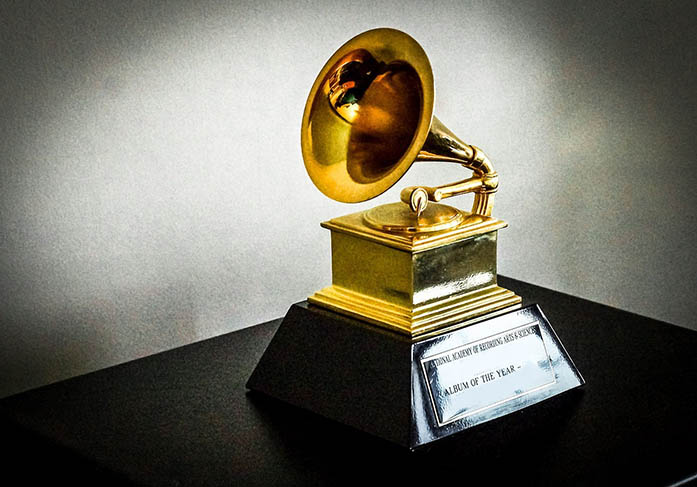By Vivian Medithi
Gucci Mane is mad he wasn’t nominated for a Grammy. On Dec. 7, the Atlanta rapper tweeted, “I’m sick of it,” punctuating the word sick with an emoji wearing a disgusted expression and a surgical mask. Never mind that the album he was specifically upset about, this December’s The Return of East Atlanta Santa, has yet to be released. He told a fan on Twitter the same day, “That is not the point.”
In a way, this petulant exchange, clearly in jest, is a good summation of how awards feel in the modern age. As the digital era progresses, the tools to make and disseminate music have become more accessible. Concurrently, social media have become a more integral part of the artist-fan relationship, allowing artists to forgo traditional structures of music distribution and fan engagement for something at once more immediate and organic.
In the wake of music scenes shattered into hundreds of micro-niches, broad categories such as “Best Rap Album” or “Best Rock Performance” seem designed to upset core fans of genres in a ploy to appeal to what the most people will like.
For example, most rap fans thought Views, by Drake, was a subpar album. Yet here it is, nominated for a Grammy. Part of this is because of the Grammy’s voting process, which typically favors name recognition and popular songs over pure evaluation of artistic skill. But it also seems indicative of biases within the recording academy that prioritizes the opinions of an ephemeral “middle America.”
This leads to unexpected award recipients that seem inscrutable to the public at best and then contribute to how genres are understood within wider culture. Various sites’ “End of the Year” lists are also subject to this fault, although individual sites’ lists tend to be reflective of a particular site’s ethos and approach to music, and thus more easily digested and understood.
So what’s the solution? It seems unlikely that the Grammys will suddenly revamp the decades-old voting process or democratize who can even be a voting member of the academy, unfortunately paralleling our electoral system known for its centuries-old Electoral College and long history of voter disenfranchisement.
The commercialism of music is an unfortunate and inevitable byproduct of capitalistic commodification of art, and this means that artists with labels and money behind them will continue to be more popular than their peers without those advantages, regardless of their skill (ahem, Chainsmokers).
Cultural gatekeepers (like those voting on Grammys) will always try to maintain a grip on culture, foisting their views on others in the hopes they will agree. When we disagree, the only logical response is to not reward them. Given the subjectivity of the subject, it is inevitable that we, as humans, will disagree on art. But by tuning in to hate-watch an awards show you know will upset you, you reward nominations you disagree with by giving their arbiters advertising dollars. As consumers of culture, we have the right to choose what we consume and where we put our attention.
I won’t watch the Grammys in 2017, but you can bet in 2018 I’ll be tuned in to watch Gucci take home the gold.



